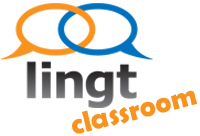 Hello,
and welcome to my teacher page. I am a Maryland certified teacher
of German and Biology interested in making education better (in schools,
tutoring, home schooling support, and distance learning).
Hello,
and welcome to my teacher page. I am a Maryland certified teacher
of German and Biology interested in making education better (in schools,
tutoring, home schooling support, and distance learning).
Specs: I am a native speaker of German, have a master's degree from the U.S., completed a prestigious NCATE accredited teacher certification program with internship and DOE stipend, have excellent Praxis scores, and hold a Standard Professional Certificate from Maryland. I have eight years of classroom experience with both children and adults. I believe in always being "real" with students and treating them with the same respect I ask from them.
Other qualifications: I get full use out of technology like computers, video, the Promethean Board, and online learning tools. I am fluent in Spanish and share experience with English Learners.
Click here for a run down of digital learning tools I have used with students.
Background: In the past, I have worked as a research scientist, one-man tech support department, programmer, software localizer, web developer for NASA, software tester, help desk analyst, electronic trading administrator, stage musician, tutor, substitute teacher in Virginia for two years, paraeducator in Maryland for two, teacher of record in Biology and "Matter & Energy" for one year and German for another year in Maryland. One year, I also taught Tutorial with HSA Prep, and remedial math (while officially employed as paraeducator). Another year, I taught German and Science at a private school. I am also a writer, cartoonist, philosopher, humanist, international traveler, and - that rarest of animals - a decent human being. Read further below for more background and my educational philosophy.
I am passionate about teaching. If I can be of help to you or someone you know, send me a quick message. — Last updated: March, 2013



